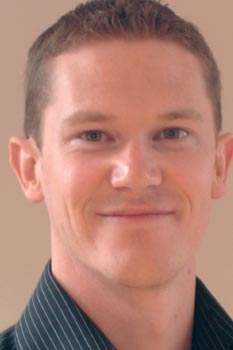In the absence of an integrated process for development and succession planning, many managers are put in situ with little, if any, development, writes Keith McCarthy.
While preparing for a presentation recently to a group of managers on change management, I was struck by a quote by Champagne 20021. It reads…

Two questions struck me afterwards; the first, do we really expect our managers to have this array of skills, abilities, knowledge and qualities. Secondly, how well equipped are managers to handle the range of challenges from basic people management issues to complex change management agendae?
In an ideal world as people climb the management ladder and move from an operational grade to a management one, they would receive training, coaching and mentoring as part of a succession planning process. This would prepare them for the reality of the role they are about to undertake. When in the role they would receive ongoing competency development and coaching to encourage maximum performance. This integrated process is not beyond the realms of possibility. It is in place in many organisations or at least partly in place in some others.
The ‘suck-it-and-see’ management development process kicks in
Unfortunately, however, this is often the exception rather than the rule. And in the absence of an integrated process for development and succession planning, many managers are put in situ with little, if any, development. The ‘suck-it-and-see’ management development process kicks in. They learn by experience. Without a basic grounding in management practice, however, the consequences of this haphazard approach to development are often felt immediately on both the team, the new manager, the organisation and of course the patient or service user. While there are many tasks the new manager can complete, they can very quickly become swamped in paper work, complex people issues, difficult interactions, pressure on resources and challenging senior managers.
What happens to the strategic, empowered, flexible, astute psychologist and esteemed negotiators we need according to Champagne. They become lost in the role of being a manager doing all the busy things that managers do.
Reflecting back on my initial two questions. Yes, we often have high expectations for our managers, perhaps not as detailed as outlined by Champagne. Certainly many of the qualities the author refers to are expected. Some managers have a natural ability in certain areas and others need more education, training and development. But the bar is often set high. In terms of being equipped, many managers are and there is certainly plenty of evidence to suggest that there are good managers across the health service. However, there are still many managers who are not prepared or able to take on the role. This leads to inconsistencies in approach and often tiers of substandard management practice.
This FETAC Level 6 programme will cover the key skills required by potential managers, newly appointed managers or existing managers who want to update their skills
So how do we equip our managers and prepare them for the reality of the role they are to undertake? They will learn a lot through experience, but even through this type of learning they need guidance and support. Sourcing that support can be difficult. Education and training options can be difficult to filter to identify the best one. Added to this, is the complexity of the healthcare sector itself and the specific challenges it faces now and in the future.
The Health Management Institute is helping to fill this gap by giving managers support and opportunities for development. In October of this year the HMI is launching its new Advanced Certificate in Management (Healthcare). This FETAC Level 6 programme will cover the key skills required by potential managers, newly appointed managers or existing managers who want to update their skills. This programme is focused on management specifically for healthcare managers. The programme will cover nine modules over 16 days. These will include:
- Business Management: focuses on aspects of understanding the make-up of organisations and complexities of management culture and change.
- Strategic and Service Planning: provides guidance on the different types and levels of planning as it is applied to the Health Service.
- Financial Management: is aimed at helping managers understand the fundamentals of finance and budgeting as it applies to their workplace.
- People Management: provides a framework for managing the basic to complex people issues, policies and procedures with particular focus on their preferred management style.
- Employment Law: covers the fundamental aspects of Irish employment law that managers need to know.
- Coaching: will help managers to develop skills in coaching using the GROW model through a practical and hands-on approach.
- Conflict Management: gives participants the knowledge and skills to understand and handle complex conflict situations.
- Governance and Risk Management: will provide a grounding in this increasingly complex area within the healthcare environment.
- Planning for Personal Development: will help participants to reflect and plan their career and personal development.
The programme will run on Friday afternoons (2pm – 8pm) and on Saturdays (9.30pm – 4.30pm) and will commence in October 2010 and finish in May 2011. Each module, excluding Governance and Risk Management, will receive an individual component certificate leading to an overall Advanced Certificate. Assessments will be required to be completed for each module to satisfy FETAC requirements.
Are you ready to be equipped? If so, contact Ann on (01) 2974070 for more information. Your opportunity awaits.

